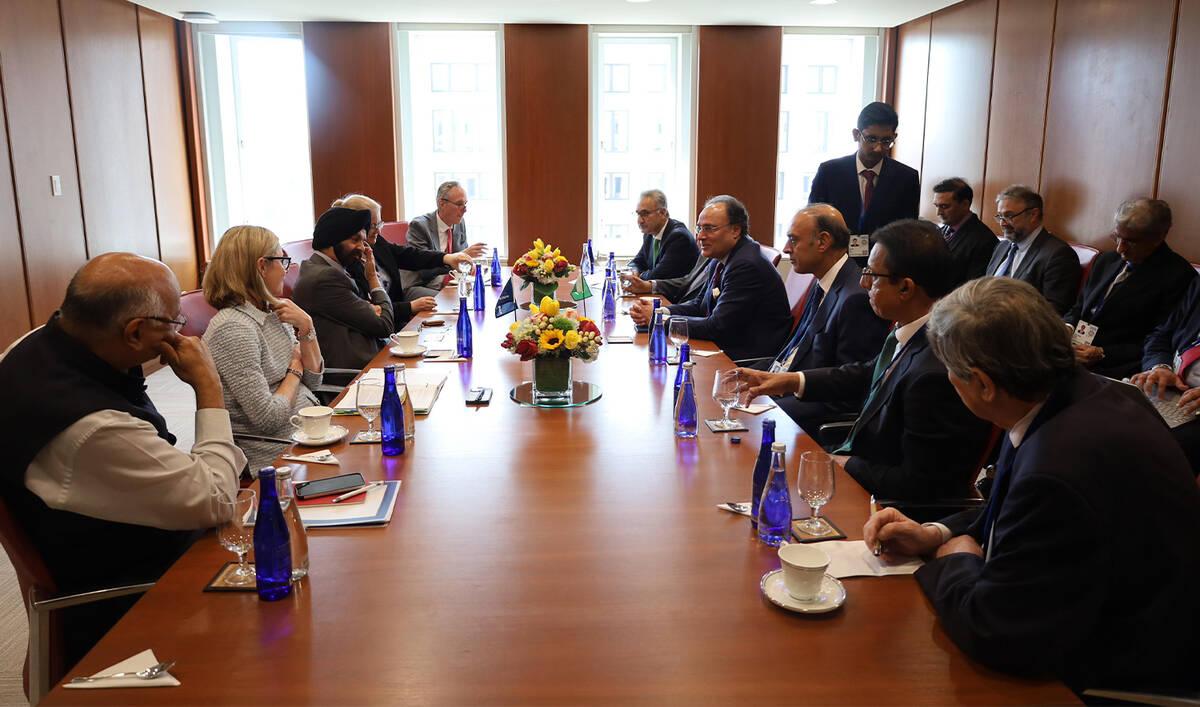VATICAN CITY: His predecessor loved Mozart, but Pope Francis’s passion was football — for him “the most beautiful game” and also a vehicle to educate and spread peace.
From Argentine compatriots Lionel Messi and the late Diego Maradona to Zlatan Ibrahimovic and Gianluigi Buffon, Francis received the greatest stars of football at the Vatican, signing dozens of shirts and balls from around the world.
And the admiration flowed both ways. Following news of the Pope’s death on Monday at the age of 88, Messi took to Instagram to pay tribute.
“A different Pope, close, Argentinian... Rest in peace, Pope Francis,” the eight-time Ballon d’Or winner posted. “Thank you for making the world a better place. We will miss you.”
Francis often recounted playing as a young boy on the streets of Buenos Aires, using a ball made of rags.
While admitting he was “not among the best” and that “he had two left feet,” he often played as goalkeeper, which he said was a good way of learning how to respond to “dangers that could arrive from anywhere.”
His love of football was inseparable from his loyalty to the San Lorenzo club in Buenos Aires, where he went to watch matches with his father and brothers.
“It was romantic football,” he recalled.
He maintained his membership even after becoming pope — and caused a minor uproar when he received a membership card from rivals Boca Juniors as part of a Vatican educational partnership.
Francis kept up to date with the club’s progress thanks to one of the Vatican’s Swiss Guards, who would leave results and league tables on his desk.
On Monday, San Lorenzo’s home page showed a large photo of a smiling pope under the club’s blue-and-red striped emblem, and the words: “Goodbye forever, Holy Father!”
Football is often compared to a religion for its fans, and Francis held numerous giant masses in football stadiums during trips abroad.
French Bishop Emmanuel Gobilliard, the Vatican delegate for the 2024 Paris Olympic Games, said he understood the crucial role played by football.
“Whether you are an amateur or professional footballer, whether you like to watch it on television, it makes no difference: this sport is part of people’s lives,” he said.
But it was not just an end in itself — Francis, a Jesuit, also saw football as a way of spreading peace and education, despite the money and corruption linked to the sport.
In 2014, the Olympic stadium in Rome hosted an “inter-religious match” for peace at his initiative.
“Many say that football is the most beautiful game in the world. I think so too,” Francis declared in 2019.
As early as 2013, addressing the Italian and Argentine teams, Francis reminded players of their “social responsibilities” and warned against the excesses of “business” football.
The pontiff’s love for the game inspired a scene in a film “The Two Popes,” in which former pope Benedict XVI and then-cardinal Jorge Bergoglio watch the 2014 World Cup final between their two countries, Germany and Argentina.
It was pure fiction, as the soon-to-be Francis gave up watching television in 1990 — the year West Germany beat Argentina in the World Cup final hosted by Italy — while his predecessor preferred classical music and reading.
His enthusiasm for football said UEFA president Aleksander Ceferin on Monday bore “witness to a joyful spirit and his ability to connect with people through warmth and a sense of shared humanity.”
Francis never mentioned the 1978 World Cup in Argentina, which took place in the midst of a dictatorship when he was a provincial leader of the Jesuits.
But he dedicated an entire chapter of his 2024 autobiography to Maradona, whose infamous “hand of God” goal helped Argentina beat England in their 1986 World Cup quarterfinal clash.
“When, as pope, I received Maradona in the Vatican a few years ago... I asked him, jokingly, ‘So, which is the guilty hand?’” he said in 2024.
And asked once who was the game’s greatest player, Maradona or Lionel Messi, the pope hedged his bets.
“Maradona, as a player, was great. But as a man, he failed,” Francis said, referring to his addictions to cocaine and alcohol.
He described Messi as a “gentleman,” but added that he would choose a third, Pele, “a man of heart.”






















